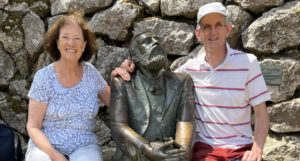Help improve breast cancer care for autistic people by taking part in new research

A major new project is examining the impact of healthcare barriers that autistic people face in cancer care
Experts working to improve breast cancer care for autistic people are recruiting participants to share their experiences of breast cancer diagnosis and treatment in the UK.
Bright, busy and noisy GP surgeries and hospitals can contribute to autistic people finding it difficult to access healthcare they need.
A major new project is examining the impact of healthcare barriers that autistic people face in cancer care and exploring autistic people’s experiences to improve cancer care in the future.
These experiences will be used to produce guidelines to help medical professionals better support autistic people who have breast cancer, as well as recommendations for autistic people who are currently undergoing treatment to discuss with their medical team.
Participants are needed to take part in interviews about their breast cancer diagnosis and treatment.
The Autistic Experiences of Breast Cancer research project is led by Dr Char Goodwin, who is autistic and has had a breast cancer diagnosis. It is funded by the research and support charity, Breast Cancer Now.
Dr Goodwin said: “To fully understand what breast cancer experience is like for autistic people we need to hear directly from them. The cancer experiences shared during the interviews will provide rich information about what it is like to experience breast cancer as an autistic person.
“I know first-hand that it isn’t easy to share your cancer story, and it is not something that we take lightly.
“We would like to hear from autistic people about their experience from diagnosis and through hospital treatment.
This research project started in June 2023 and will continue for 3 years.
The research team will be interviewing 8 to 12 autistic people about their experiences and would like to work with people with a range of experiences. This means not everyone who volunteers may be able to take part, but the research team will keep everyone who volunteers informed. There will be an opportunity for more people to take part in an online survey next year.
The interview will be online via Teams or Zoom but they can be conducted differently if needed. Participants can be supported by family or friends if they wish.
All participants will be pseudo-anonymised. They will be able to review a transcript of their interview, and will be given a chance to look at the written paper produced at the end of the study if they wish.
If you would like more information about the interviews please read the information sheets on https://www.aebcstudy.co.uk/ or alternatively email the research team at aebcstudy@exeter.ac.uk.



